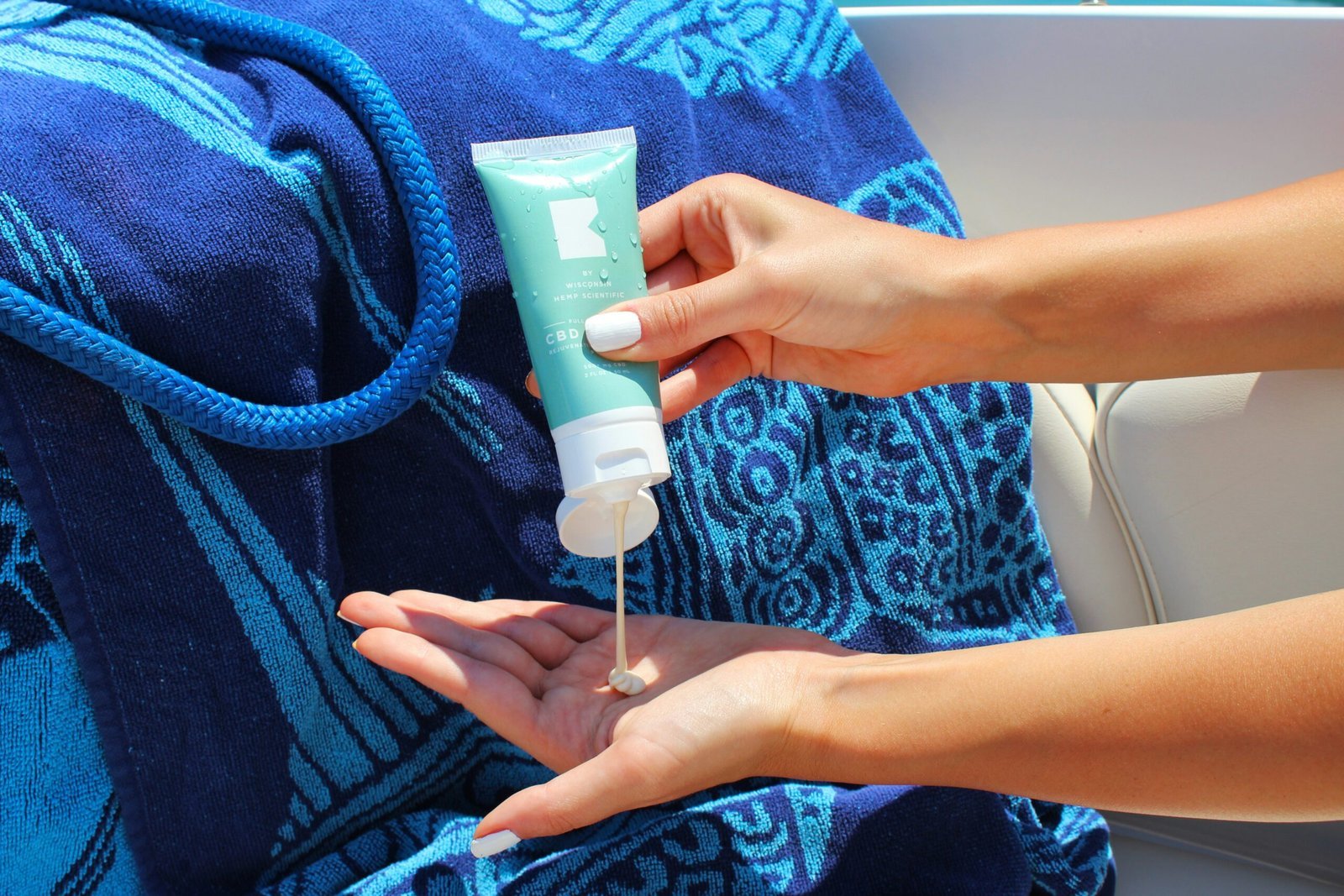Why Sunscreen is a Must-Have for Healthy Skin
June 6, 2024
Understanding the Importance of Sunscreen
Sunscreen serves as an essential barrier that protects the skin from the harmful effects of ultraviolet (UV) rays, which are emitted by the sun. Exposure to UV radiation can lead to a variety of adverse skin conditions, making the use of sunscreen a crucial component of any skincare regimen.
There are two main types of UV radiation that affect the skin: UVA and UVB rays. UVA rays, which make up the majority of UV radiation, penetrate deep into the skin and are primarily responsible for long-term skin damage, such as premature aging and the formation of wrinkles. On the other hand, UVB rays are responsible for causing sunburn and play a significant role in the development of skin cancer. Both types of UV rays can have detrimental effects on skin health, emphasizing the need for effective protection.
Sunscreen operates by either absorbing or reflecting these harmful UV rays. Products labeled as broad-spectrum provide protection against both UVA and UVB rays, offering comprehensive defense against sun damage. When choosing a sunscreen, an SPF (Sun Protection Factor) of 50 is often recommended, as it indicates a high level of protection that can significantly reduce the risk of skin damage.
Daily application of sunscreen is imperative, regardless of weather conditions or skin type. UV rays can penetrate through clouds, and reflective surfaces such as water and snow can intensify exposure. Additionally, individuals with all skin types, from fair to dark, are susceptible to UV damage, making sunscreen an indispensable part of daily skincare routines.
Incorporating sunscreen into one’s daily regimen not only helps in preventing immediate damage like sunburn but also plays a pivotal role in reducing the risk of more severe conditions, such as skin cancer and premature aging. By understanding the importance and function of sunscreen, individuals can take proactive steps to maintain healthy, resilient skin.
Health Benefits of Using Sunscreen Regularly
Incorporating sunscreen into your daily skincare routine is essential for maintaining healthy skin. The primary function of sunscreen is to protect the skin from harmful ultraviolet (UV) rays. Exposure to UV rays can cause both immediate and long-term damage to the skin. In the short term, UV exposure can lead to sunburns, which are not only painful but also can cause immediate skin inflammation and damage.
Regular use of sunscreen with a high SPF, such as SPF 50, can significantly reduce the risk of these immediate effects. More importantly, continuous UV exposure without protection can lead to DNA damage in skin cells, which is a precursor to skin cancer. By effectively blocking or absorbing these harmful rays, sunscreen provides a crucial defense against the development of skin cancer, making it a vital component in skin health management.
Beyond cancer prevention, sunscreen plays a crucial role in preventing premature aging. UV rays accelerate the breakdown of collagen and elastin, proteins that are essential for the skin’s structure and elasticity. This breakdown leads to the early onset of wrinkles, fine lines, and age spots. By applying sunscreen regularly, you can help maintain a youthful appearance and prevent these visible signs of aging. As a result, your skin remains smoother and more resilient over time.
Moreover, sunscreen helps in preventing other immediate skin reactions such as redness, irritation, and hyperpigmentation. These conditions can not only be uncomfortable but also affect the overall appearance of your skin. By integrating sunscreen into your daily regimen, you create a protective barrier that shields your skin from the adverse effects of UV radiation, ensuring that your skin stays healthy and looks its best.
In conclusion, the health benefits of using sunscreen regularly are substantial. From preventing sunburns and skin cancer to maintaining youthful and radiant skin, sunscreen is an indispensable tool in your skincare arsenal.
Choosing the Right Sunscreen for Your Skin Type
When it comes to selecting the ideal sunscreen, understanding your skin type and specific needs is crucial. Sunscreens are broadly categorized into chemical and physical (or mineral) types. Chemical sunscreens absorb UV rays using active ingredients like oxybenzone and avobenzone, while physical sunscreens, containing zinc oxide or titanium dioxide, create a barrier that reflects UV radiation. Each type has its own set of advantages and disadvantages. Chemical sunscreens are often lighter and less visible on the skin, making them suitable for daily wear. However, they may cause irritation for sensitive skin. On the other hand, physical sunscreens are less likely to provoke reactions but can leave a white cast, which might not be ideal for all skin tones.
Choosing the right SPF level is another essential factor. Dermatologists recommend using a sunscreen with at least SPF 30, but for extended outdoor activities, SPF 50 provides more robust protection. Broad-spectrum sunscreens protect against both UVA and UVB rays, making them superior for comprehensive skincare. UVA rays contribute to premature aging, while UVB rays are primarily responsible for sunburn. Hence, broad-spectrum coverage is indispensable for maintaining healthy skin.
Water resistance is another critical consideration, particularly if you engage in swimming or sweat-inducing activities. Water-resistant sunscreens maintain their efficacy for a certain period, usually 40 to 80 minutes, but should be reapplied regularly to ensure continuous protection.
Reading sunscreen labels can be equally important. Look for key ingredients like zinc oxide and titanium dioxide for physical sunscreens, and for chemical options, ingredients like avobenzone and octisalate are effective. For those with sensitive skin or conditions such as acne or rosacea, opting for fragrance-free and hypoallergenic formulations can minimize potential irritation.
In summary, understanding the nuances of sunscreen types, SPF levels, broad-spectrum protection, and key ingredients can help you make an informed choice tailored to your specific skin type and lifestyle needs. Always consult with a dermatologist for personalized advice, especially if you have sensitive skin or other underlying conditions.
Proper Application and Usage Tips for Sunscreen
Ensuring the effectiveness of sunscreen begins with proper application and usage. To maximize its protective benefits, it is essential to apply a sufficient amount of sunscreen. Experts recommend using about one ounce, roughly the size of a shot glass, to cover the entire body. For the face alone, a nickel-sized dollop should suffice. It is crucial to cover all exposed skin thoroughly, including often-overlooked areas such as the ears, neck, and the tops of the feet.
Equally important is the timing of the application. Sunscreen should be applied at least 15 to 30 minutes before sun exposure to allow it to fully absorb into the skin. Reapplication is key to maintaining protection, especially after swimming, sweating, or towel drying. Generally, sunscreen should be reapplied every two hours under normal conditions.
Integrating sunscreen into your daily skincare routine can be seamless. Apply it after your moisturizer but before any makeup. This ensures a barrier is formed to protect against UV rays without interfering with the absorption of other skincare products. Opt for sunscreens with at least SPF 50 for optimal protection, and consider products that offer broad-spectrum coverage to shield against both UVA and UVB rays.
Addressing common misconceptions is also critical for effective sun protection. One prevalent myth is that sunscreen is only necessary on sunny days or at the beach. However, UV rays can penetrate through clouds and windows, necessitating daily use regardless of the weather or location. Another misconception is that darker skin tones do not need sunscreen. In reality, all skin types are susceptible to UV damage, making sunscreen an indispensable part of every skincare regimen.
By following these guidelines, you can significantly enhance the efficacy of your sunscreen, ensuring robust protection against the harmful effects of UV rays and promoting healthy skin.

